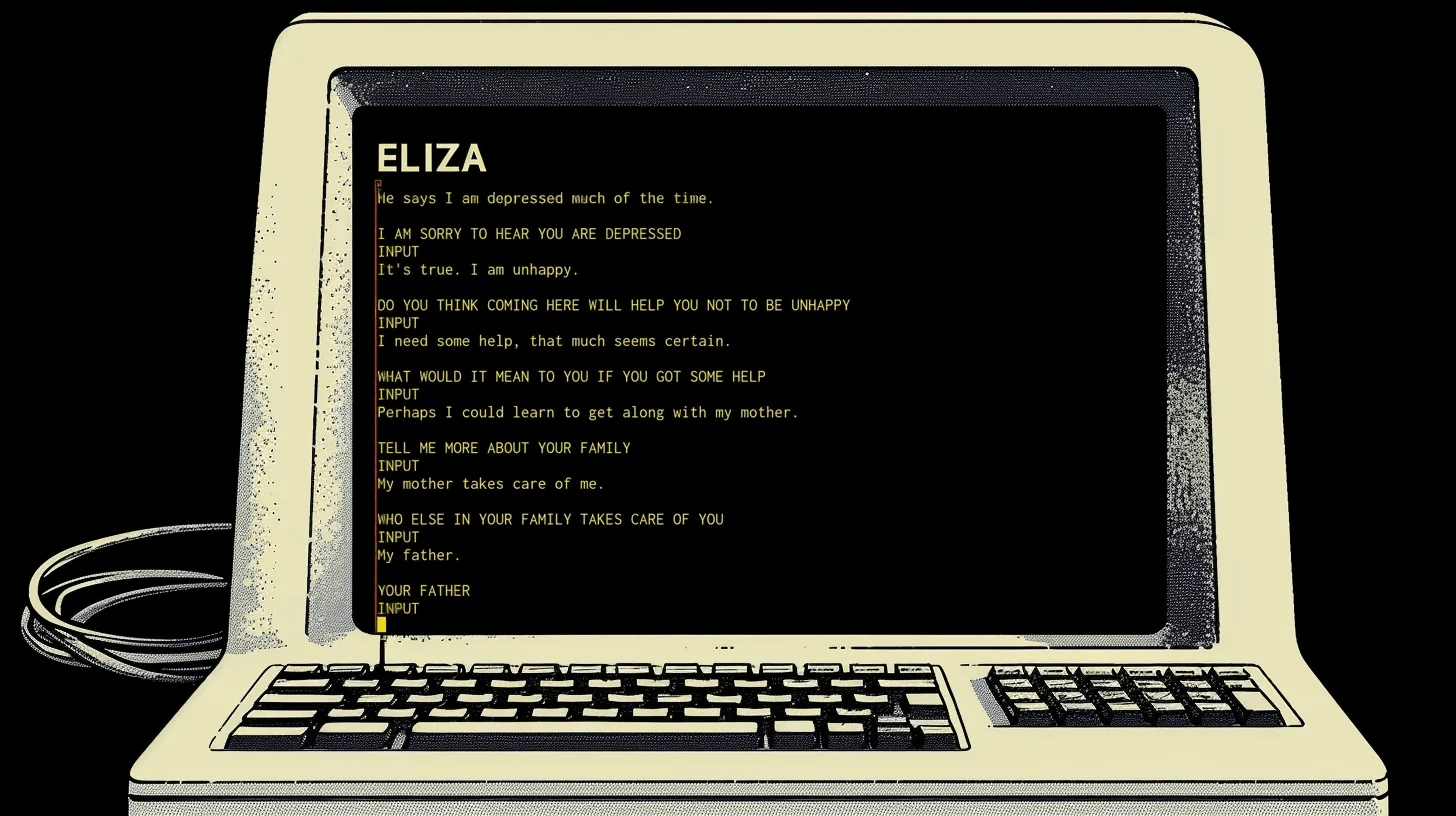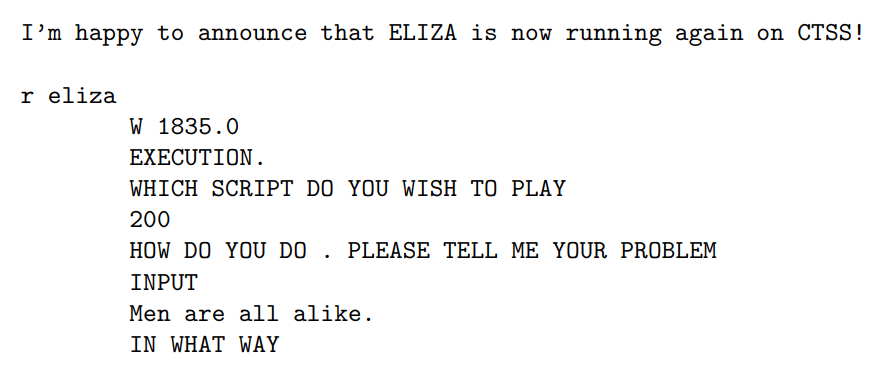ELIZA, the world's first chatbot, is back online after six decades thanks to AI historians

Key Points
- Researchers have successfully restored ELIZA, the world's first chatbot from the early 1960s, and made it run on an emulated operating system from that era.
- During the restoration process, the team discovered a previously unknown "teaching mode" that allowed users to modify ELIZA's behavior by adding new rules and responses.
- ELIZA was the first embodiment of the Turing test idea, demonstrating that humans can engage in conversation with computers. However, its simplistic operation also raised the still-debated question of whether AI truly "understands" or simply reproduces patterns, drawing parallels to the current discussion surrounding modern chatbots like ChatGPT.
The world's first chatbot just got resurrected. After gathering dust for over 60 years, ELIZA is running again on its original operating system, thanks to a dedicated team of AI historians and computer scientists.
The breakthrough came in 2021 when researchers discovered Joseph Weizenbaum's original ELIZA code buried in MIT's archives.
This wasn't just any version of ELIZA - it contained the complete DOCTOR script, the core program that let ELIZA play therapist by mimicking Rogerian psychotherapy techniques. Until this discovery, we only had modern programming language recreations of ELIZA to work with.

Getting ELIZA to boot again
Bringing ELIZA back wasn't simple. The restoration team had to wrestle with 2,600 lines of barely documented code, patch up missing functions, and solve a host of technical puzzles. The restored version runs on an emulated IBM 7094 computer - a machine that cost $2.9 million in the 1960s, which would be equivalent to about $23 million today, according to the researchers.
During the restoration process, the team uncovered a hidden "teaching mode" that let users customize ELIZA's behavior. By typing "+", users could add new rules and responses - a feature that Weizenbaum had only briefly mentioned in his 1966 paper about ELIZA.
The team also found a quirky bug: ELIZA crashes whenever users type numbers. Instead of fixing it, they decided to keep this flaw to maintain historical accuracy. About 96 percent of the code remains exactly as they found it.
The restored ELIZA is now available on Github, where anyone can download the code and emulator to try out this piece of computing history - quirks and all.
ELIZA's ghost still haunts AI
The researchers say it's still unclear whether Weizenbaum meant ELIZA to be a serious AI project or a critique of AI research. While he worked closely with AI researchers, including Stanford psychiatrist Kenneth Colby who studied mental illness through AI, ELIZA's simple functionality revealed AI's fundamental limits: the chatbot only created an illusion of understanding while actually following pre-programmed response patterns.
This ambiguity still feels relevant today, as experts continue debating whether modern chatbots like ChatGPT truly "understand" language or just reproduce patterns based on probabilities, and where exactly the difference between pattern matching and genuine understanding lies.
As the researchers explain, ELIZA "showed, in part, in its overt stupidity that you may not have to actually solve intelligence to obtain artificial intelligence – up to that point, and up to the spectacular and unexpected apparent intelligence of LLMs – people were trying to model how people thought and code those processes into computers."
This idea is making a bit of a comeback. OpenAI's latest o-models attempt to simulate human thought processes using language models, and scale them through massive computational efforts to achieve more accurate results, rather than by exactly replicating human cognition.
Although these models consume far more computation (and thus energy) than a human brain, they raise the same fundamental question as ELIZA: perhaps the path to artificial intelligence doesn't require copying human thought processes exactly, but rather finding alternative ways to achieve similar results.
Intentionally or not, ELIZA had a major impact on the development of AI. The researchers note that the chatbot was the first to embody the Turing test, introducing the world to the idea that humans could talk to computers. Six decades later, this concept is more relevant than ever.
AI News Without the Hype – Curated by Humans
As a THE DECODER subscriber, you get ad-free reading, our weekly AI newsletter, the exclusive "AI Radar" Frontier Report 6× per year, access to comments, and our complete archive.
Subscribe now